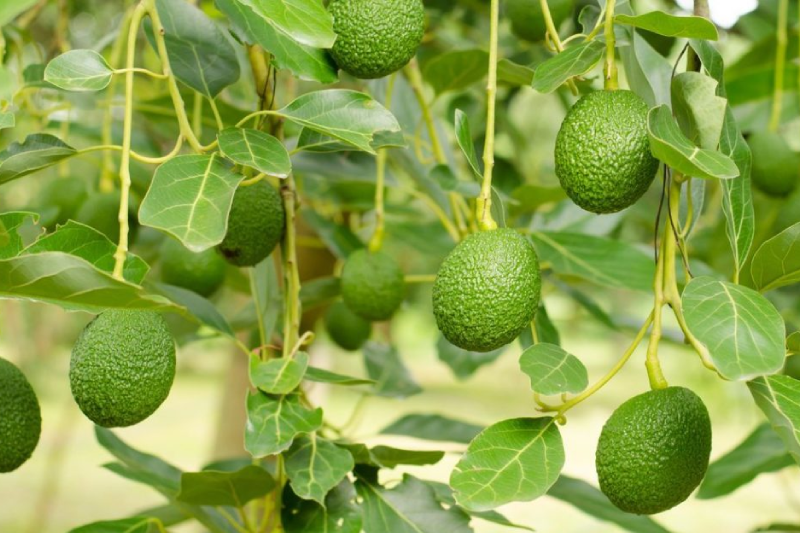Our Certification Focus
GlobalGAP Certification: When we pursue GlobalGAP certification, we understand that this internationally recognized standard helps us demonstrate our commitment to safe and sustainable agricultural practices. This certification assures our buyers that our products are produced in compliance with strict food safety and environmental standards. The process involves thorough documentation and regular audits, which ensure we meet criteria related to traceability, worker safety, and environmental impact. By obtaining GlobalGAP certification, we not only enhance our marketability but also strengthen our relationships with buyers who prioritize quality and sustainability in their sourcing decisions.
Rainforest Alliance Certification: As we aim for Rainforest Alliance certification, we focus on promoting sustainable farming practices that protect biodiversity and improve the livelihoods of farmers. This certification requires us to adhere to stringent environmental and social criteria, which means we must demonstrate our commitment to practices that reduce deforestation, conserve water, and promote fair treatment of workers. Achieving this certification not only helps us appeal to environmentally conscious consumers but also fosters responsible agricultural practices within our operations. By being certified, we can proudly convey our dedication to sustainability, thereby enhancing our brand reputation and market presence.
GRASP Certification: When we consider GRASP (GlobalGAP Risk Assessment on Social Practice) certification, we recognize its significance in demonstrating our commitment to social responsibility in the agricultural sector. This certification focuses specifically on the social practices of our operations, ensuring that we provide safe working conditions, fair wages, and proper treatment of workers. The GRASP assessment requires us to evaluate and improve our social practices continually. By obtaining this certification, we enhance our credibility in the market and reassure our buyers that we prioritize not only the quality of our products but also the welfare of our workforce.
Export License: In our global trading activities, we understand the importance of obtaining an export license when required. This license ensures that we comply with governmental regulations regarding the export of specific goods, particularly those that may be sensitive or subject to trade restrictions. The process of acquiring an export license involves understanding the legal requirements specific to our products and destinations. By securing the necessary licenses, we protect our business from potential legal issues and foster trust with our buyers, who expect compliance with all regulatory frameworks. This diligence enhances our reputation as a responsible and reliable exporter.
Importance of Certifications: As we navigate the complex landscape of international trade, we see that certifications play a crucial role in our operations. Each certification we pursue not only meets regulatory requirements but also reflects our commitment to quality, sustainability, and social responsibility. These credentials open doors to new markets and enhance our competitive edge, allowing us to stand out among our peers. By actively seeking and maintaining these certifications, we demonstrate our dedication to ethical practices, which ultimately resonates with consumers and partners alike.
Continuous Improvement: We understand that obtaining certifications like GlobalGAP, Rainforest Alliance, and GRASP is not just a one-time effort; it requires ongoing commitment to continuous improvement. We regularly review our practices and engage with our teams to ensure that we uphold the standards required for these certifications. This proactive approach not only helps us maintain compliance but also fosters a culture of accountability and excellence within our organization. By embracing continuous improvement, we position ourselves as leaders in sustainable agriculture, reinforcing our dedication to both our products and the communities we serve.
The Options we Offer in Payment Terms
FOB (Free On Board): When we engage in transactions that involve the FOB term, we understand that our role as sellers is to ensure the goods are transported to a specified port and loaded onto the vessel. We bear the responsibility of arranging for the safe passage of the goods until they are on board. It is at this moment, once the goods have been loaded, that the risk shifts to our buyers. They then assume the responsibilities for any shipping costs beyond that point, which includes freight and insurance. This clear delineation of responsibilities helps us manage our shipping processes efficiently and ensures our buyers know exactly what they need to handle.
CIF (Cost, Insurance, and Freight): In transactions governed by CIF terms, we, as sellers, take on a more extensive role in the shipping process. Our responsibilities encompass not only the costs of shipping but also the insurance and freight expenses associated with transporting the goods to a designated port. We remain accountable for the safe arrival of the goods at this destination. The moment the goods are loaded onto the vessel, the risk is transferred to our buyers. This arrangement allows us to provide our buyers with peace of mind, knowing that we are managing significant aspects of the shipping process, while they take care of unloading and any subsequent logistics.
Ex Works (EXW): When we specify Ex Works in our agreements, we understand that our obligations are quite limited compared to other terms. As sellers, our role is to make the goods available at our premises or another agreed location, which means we need to ensure they are ready for pickup. From that point forward, the responsibility fully shifts to our buyers, who must handle everything, including loading, transportation, and insurance. This approach can simplify our process, as we focus on preparing the goods, while our buyers manage all logistics. It’s essential for us to communicate clearly to ensure our buyers understand their extensive responsibilities.
Sustainability Commitment:
At Mulberry Growers, we are focused on environmentally friendly farming practices, following the principles of preserving natural resources and the community’s health. Our avocados are grown with love from ecologically friendly farming practices that do not harm the soil or the environment.
